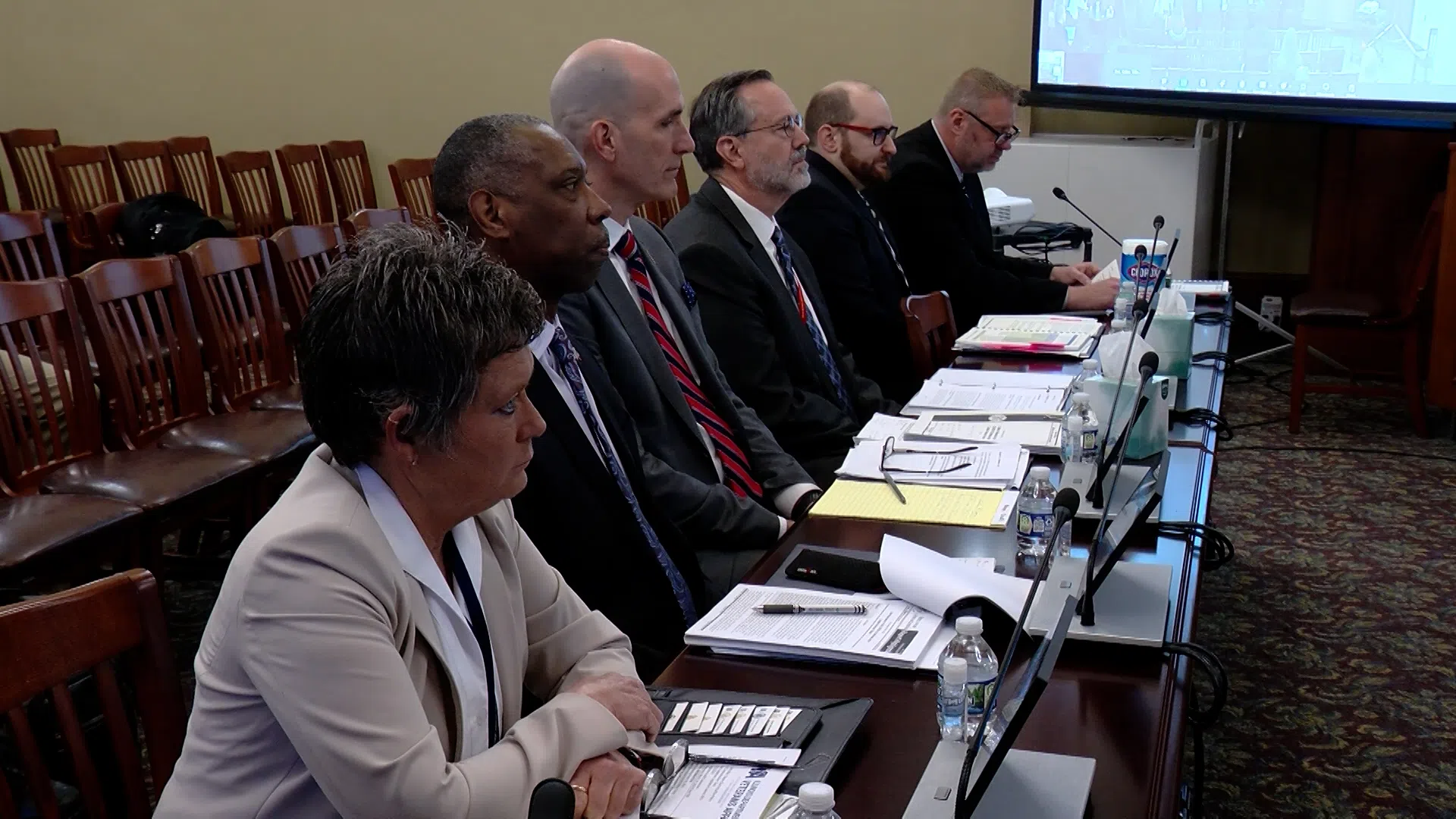Lawmakers discuss audit of LaSalle Veterans Home outbreak that killed 36 residents
By COLE LONGCOR
Capitol News Illinois
clongcor@capitolnewsillinois.com
SPRINGFIELD – Illinois’ veterans affairs director told a legislative panel this week that while state-run veterans homes have better policies in place following a COVID-19 outbreak that killed 36 residents at the LaSalle Veterans Home in 2020, understaffing remains a challenge.
“The need for long-term care will explode over the next 20 years,” Illinois Department of Veterans Affairs Director Terry Prince told the Legislative Audit Commission. He predicted long-term care populations would grow by 200 to 500 percent in that span.
He said while IDVA has employees who “are dedicated and devoted and willing to work overtime,” the department has also let its census decrease at state-run veterans homes to keep staff-to-patient ratios sustainable.
“It could be easy to say yeah, we’re gonna fill the Quincy Veterans Home and fill it all the way up to 400 people, but you have to have the staff to do so,” he said.
He said staffing remains difficult even though Illinois’ “fantastic” benefits package for staff at veterans homes is “nearly $40,000 higher than the civilian equivalent.”
As for responding to COVID-19 outbreaks, Prince said the department is in a much better place than it was in 2020. Beginning in late October that year, the LaSalle home experienced a COVID-19 outbreak that sickened nearly 200 people – a whopping 85 percent of residents and 35 percent of staff tested positive for the virus, which eventually killed three dozen residents.
The deadly outbreak led to legislative hearings and scrutiny of Gov. JB Pritzker’s administration’s response. The General Assembly called for an audit, which was published in 2022. The 12-member Legislative Audit Commission held its hearing to review it on Wednesday.
Read more: Audit finds IDPH failed to intervene in early days of LaSalle Veterans’ Home outbreak
The audit made three major recommendations, including mandating testing of staff and residents during COVID outbreaks – defined as two or more cases – and delineating responsibilities between IDVA and IDPH. Additionally, the audit recommended the governor’s office increase oversight of administrative staff and create a senior home administrator position within IDVA.
“I want to make sure that it’s recognized that this agency threw everything at this situation as they did during the COVID crisis,” Prince said.
IDVA Assistant Director Anthony Vaughn told the panel that when he arrived at LaSalle toward the end of the outbreak in December 2020 as the home’s newly appointed interim administrator, he found “a dedicated staff looking to do the right thing.”
But he also compared the scene to a “Marine Corps unit that’s just been through a big battle.”
“And they’re still recovering, and they’re still hurting, but they want the leadership to be able to move on,” he said.
While a 2021 report from the Illinois Department of Human Services inspector general found fault with IDVA’s response, the auditor general’s report was more critical of the state’s public health department. The auditor general’s office described the previous IDHS inspector general report as “flawed” for its reliance on interviews rather than documentation.
On Wednesday, Scott Wahlbrink of the auditor general’s office told lawmakers that the Illinois Department of Public Health was not responsive to the crisis even though officials there were repeatedly made aware “on almost a daily basis” from their counterparts at the Illinois Department of Veterans’ Affairs.
“IDPH did not identify and respond to the seriousness of the outbreak,” Wahlbrink said. “It was the IDVA chief of staff who ultimately had to request assistance.”
That chief of staff, Tony Kolbeck, was among those fired after the IDHS report on the outbreak. IDVA Director Linda Chapa LaVia was fired as well.
Pritzker, in response to the audit in 2021, said IDPH was following U.S. Centers for Disease Control and Prevention guidance not to visit a congregate facility and risk disease spread when a phone call would suffice.
Prince said one of his major changes has been improving communication.
“I have a direct line to Gov. Pritzker, if I need to call the governor for something,” he said. “I have regular conversations with the IDPH director.”
Since the outbreak, Prince said the Illinois Department of Veterans’ Affairs has made changes to prevent future outbreaks and keep residents and staff safe. Angela Simmons, IDVA senior home administrator, said that IDVA has weekly infection control meetings to review daily tests that are reported to IDPH.
In addition to increased reporting, Simmons said the department has begun including staff from the state’s five veterans homes to develop policies for how to respond to situations ranging disease outbreaks to daily incidents.
“Our policy process right now is stronger than it ever has been,” Simmons said. “We get input from the homes.”
Since the outbreak there have also been major staff changes in IDPH and IDVA. Prince was appointed in April 2021, and IDVA hired a senior home administrator and an agencywide infection specialist. It is also looking to hire a medical director this year.
Rep. Amy Elik, R-Godfrey, asked Prince if the state’s veterans homes had seen “outbreaks of other infectious diseases” since IDVA overhauled some of its procedures that have served “as sort of a test.”
Prince said the veterans homes have seen other outbreaks with better outcomes.
“I believe in my heart of hearts that the vaccine has been one of the biggest things that has made this a much different story than back in 2020,” he said. “We are much better positioned.”
Jerry Nowicki contributed to this report.
Capitol News Illinois is a nonprofit, nonpartisan news service covering state government. It is distributed to hundreds of newspapers, radio, and TV stations statewide. It is funded primarily by the Illinois Press Foundation and the Robert R. McCormick Foundation, along with major contributions from the Illinois Broadcasters Foundation and Southern Illinois Editorial Association.


